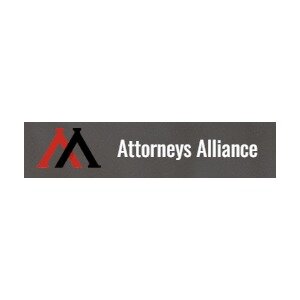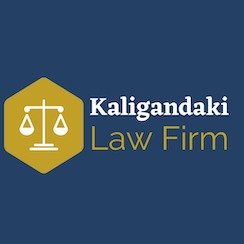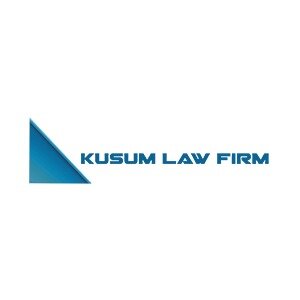Best Education Law Lawyers in Nepal
Share your needs with us, get contacted by law firms.
Free. Takes 2 min.
Or refine your search by selecting a city:
List of the best lawyers in Nepal
About Education Law in Nepal
Education Law in Nepal encompasses a wide range of regulations and policies designed to govern the operation of educational institutions, the rights and duties of students, teachers, and administrators, and the standards for educational content and delivery. The foundation of Education Law in Nepal is rooted in the Constitution of Nepal, which establishes education as a fundamental right and mandates the state to ensure access to education for all. The government has established various acts, such as the Education Act and Education Regulations, to oversee primary, secondary, and higher education. This legal framework aims to promote quality education, educational access, equity, and the protection of educational rights.
Why You May Need a Lawyer
There are several situations where individuals or institutions may require legal assistance in the field of Education Law:
- Dispute Resolution: Conflicts may arise concerning student admissions, educational malpractice, or disciplinary actions where legal intervention may be necessary.
- Policy Compliance: Educational institutions may need legal guidance to ensure compliance with ever-evolving educational laws and regulations.
- Institutional Licensing: Establishing an educational institution requires adhering to specific protocols and legal formalities, necessitating legal expertise.
- Special Education Needs: Seeking accommodations or services for special education needs can require understanding and navigating legal rights and obligations.
- Educational Employment: Legal issues related to teacher employment contracts, grievances or termination may require expertise in Education Law.
Local Laws Overview
Key components of Education Law in Nepal include:
- The Constitution of Nepal: Establishes the foundation for the right to education and mandates equitable educational opportunities for all citizens.
- The Education Act: Provides the legal framework for the management and operation of educational institutions in Nepal.
- The Child Rights Act: Protects children's rights within the educational system, ensuring safe and supportive learning environments.
- The Technical and Vocational Education and Training (TVET) Act: Regulates vocational and technical education, focusing on skill development.
- The Private and Boarding School Directives: Governs the establishment and operation of private educational institutions, ensuring adherence to national standards.
Frequently Asked Questions
What are my rights as a student in Nepal?
Students in Nepal have the right to access education without discrimination, to receive quality education, and to be treated with respect and dignity within educational settings.
Are there legal provisions for special education in Nepal?
Yes, there are provisions to ensure that students with disabilities or special education needs receive appropriate support and accommodations.
How can I resolve a dispute with an educational institution?
Consider mediation as a first step, file a grievance with the institution, or seek legal advice from a lawyer specializing in Education Law for further action.
Do I need a license to open a private school in Nepal?
Yes, to open a private school in Nepal, one must obtain a license from the relevant educational authority, adhering to established standards and regulations.
What constitutes educational malpractice?
Educational malpractice may include any act of negligence or failure by educational institutions to provide the promised educational services or adhere to legal standards.
How is the education of minority groups protected legally?
The Constitution and specific laws ensure inclusive education policies that promote cultural and linguistic diversity, protecting minority groups' educational rights.
Who can I contact if my child faces discrimination in school?
You may contact the school administration, district education office, or a legal professional specializing in Education Law for guidance and action.
What is the process for appealing a disciplinary action taken by a school?
Disciplinary actions can be appealed by following the institution's grievance process and, if necessary, seeking legal advice to ensure fair treatment.
Can foreign nationals study in Nepal?
Yes, foreign nationals can study in Nepal, but they must adhere to specific visa regulations and enrollment procedures in educational institutions.
Are there protections for teachers under Nepalese law?
Yes, teachers are protected under employment laws, including rights related to contracts, working conditions, and freedom from discrimination or harassment.
Additional Resources
For those seeking further information or assistance with Education Law in Nepal, the following resources can be helpful:
- The Ministry of Education, Science and Technology: The governmental body responsible for education policies and regulations.
- Department of Education: Supervises the implementation of educational policies at the operational level.
- The National Human Rights Commission: Provides oversight and addresses grievances related to education rights violations.
- Child Welfare Board: Protects and supports children's rights within the educational sector.
- Legal Aid Centers: Offer free or low-cost legal services to individuals facing educational legal issues.
Next Steps
If you are in need of legal assistance concerning Education Law in Nepal, consider the following steps:
- Identify the Issue: Clearly define the nature of your educational legal concern or issue.
- Research and Gather Information: Gather all relevant documentation, records, or communication related to your issue.
- Consult a Lawyer: Engage a lawyer specializing in Education Law to understand your rights, responsibilities, and possible legal actions.
- Initiate Legal Processes: Follow the lawyer's guidance to initiate appropriate legal proceedings, if necessary.
Seeking professional advice ensures that your educational rights are protected while navigating the complexities of Education Law in Nepal.
Lawzana helps you find the best lawyers and law firms in Nepal through a curated and pre-screened list of qualified legal professionals. Our platform offers rankings and detailed profiles of attorneys and law firms, allowing you to compare based on practice areas, including Education Law, experience, and client feedback.
Each profile includes a description of the firm's areas of practice, client reviews, team members and partners, year of establishment, spoken languages, office locations, contact information, social media presence, and any published articles or resources. Most firms on our platform speak English and are experienced in both local and international legal matters.
Get a quote from top-rated law firms in Nepal — quickly, securely, and without unnecessary hassle.
Disclaimer:
The information provided on this page is for general informational purposes only and does not constitute legal advice. While we strive to ensure the accuracy and relevance of the content, legal information may change over time, and interpretations of the law can vary. You should always consult with a qualified legal professional for advice specific to your situation.
We disclaim all liability for actions taken or not taken based on the content of this page. If you believe any information is incorrect or outdated, please contact us, and we will review and update it where appropriate.
Browse education law law firms by city in Nepal
Refine your search by selecting a city.

















